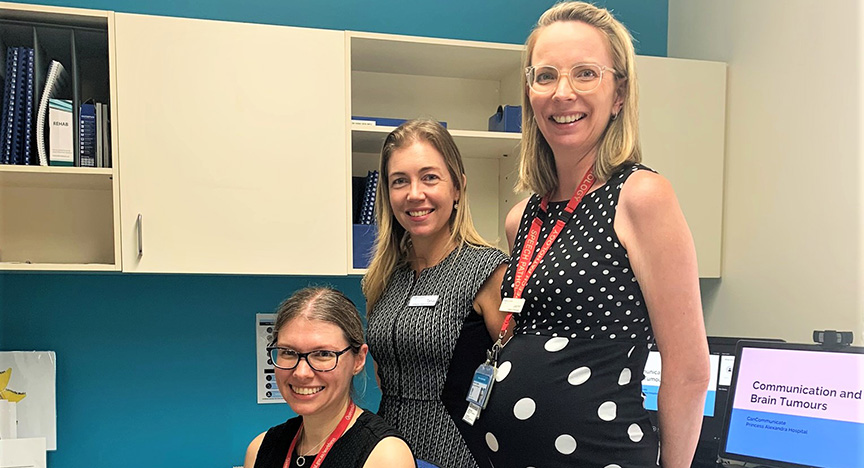
PAH Speech Pathologist Emma Finch investigates resources for patients with brain tumours so they too ‘Can Communicate’ – the name of a new program launched to provide both individual and group session intervention.
People who have undergone or are currently undergoing management of brain tumours often experience changes in their speech and language, symptoms which tend to take a backseat given the nature of their condition.
“We often find that these patients report difficulties in their speech and language but aren’t sure how to access services, so they tend to just go home,” Emma said.
“Current research indicates that approximately two thirds of people with a brain tumour will have some form of communication difficulty.”
The current most reported symptom is Anomia, in which a person has difficulties recalling words.
“These difficulties can have such a profound impact on function in their daily lives and are a source of frustration,” she said.
“It can be particularly distressing for a patient when a tumour progresses, and they are struggling to communicate with their family and friends.”
Can Communicate has been designed by the PAH team after receiving funding from the MSH Research Grant.
This body of research continues to expand across other hospitals, with input from multidisciplinary fields and consumers, as a first of its kind research that investigates targeting patients with a brain tumour specifically.
Emma says that her hope for the program is that no patient is left at home wondering what the next steps would be if symptoms presented, and to provide resources to other healthcare providers to improve patient care.
“We want to give everyone who is experiencing a brain tumour the opportunity to have their communication needs met and improve their quality of life.”